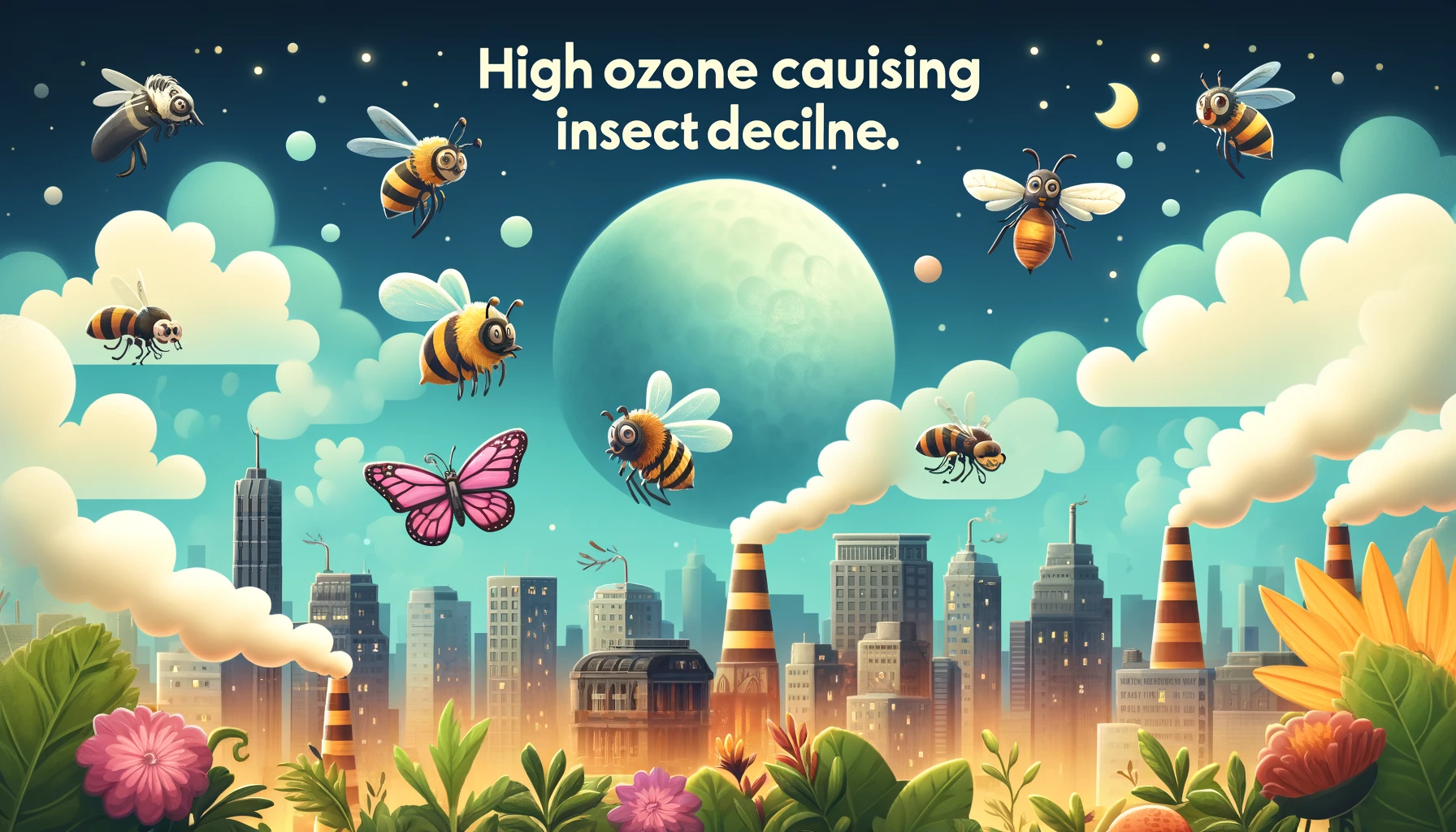Study links high ozone levels to global insect decline

Imagine a world where love songs fall on deaf ears and flashing lights go unnoticed. This strange situation might be what fruit flies are currently experiencing due to high ozone levels, as suggested by a recent study from the Max Planck Institute for Chemical Ecology in Germany.
The research reveals that ozone, a common component of smog on hot summer days, disrupts the flies' sex pheromones, leading to confusion, interspecies mating, and potentially harming global insect populations which are already under environmental stress.
"We know from previous experiments that ozone can severely disrupt mate choice in insects. Our current study indicates that even slightly elevated ozone levels, which nowadays are not uncommon on summer days in many places, cause flies to hybridize more frequently with closely related species, which could lead to a decline in insect populations due to the infertility of the resulting hybrids," says lead author Nanji Jiang from the Department of Evolutionary Neuroethology at the Max Planck Institute for Chemical Ecology
Lost in chemical translation
Pheromones – the chemical messages that fly use to attract mates - are like intricate perfumes, composed of specific odor molecules that only flies of the same species can recognize. When ozone hits these pheromones, it acts like a clumsy hand knocking over a tray of perfume bottles, breaking down the delicate molecules and creating a confusing mix.
In the study, researchers meticulously exposed fruit flies to ozone concentrations similar to those found in polluted cities on hot summer days. They then presented these ozone-exposed flies with a choice: potential mates of their own species or those from a closely related but distinct species. The findings were concerning.
Under normal conditions, most flies would choose a mate from their own species. However, many ozone-exposed females made the wrong choice, seemingly unable to interpret the scrambled pheromone signals.
Fruit flies aren't solely reliant on pheromones for mating. They also use visual cues like body language and species-specific songs produced from wing vibrations to attract partners. The study suggests that the disruption of pheromones by ozone might overpower these other signals in some cases.
The threat of hybrid offspring
The consequences of these ozone-induced interspecies pairings can be dire. One of the most immediate consequences is reproductive failure. Some interspecies pairings might not produce any offspring at all and in cases where interspecies mating does produce offspring, the results are often hybrid. These hybrids frequently face significant biological challenges. For instance, male hybrids are typically sterile, meaning they are unable to reproduce.
This wasted effort by females, where they invest time and energy into mating with the wrong partner, can significantly contribute to population decline.
A broader crisis
The researchers fear that this vulnerability is not limited to fruit flies; it could potentially affect a wide range of insects that rely on pheromones for communication and the odor molecules involved often share a similar chemical structure susceptible to ozone's disruptive effects.
Going forward, the researchers plan to investigate the impact of ozone on other insect groups, such as ants, which rely heavily on pheromones for social organization and communication.
Additionally, other oxidizing pollutants like nitrogen oxides could exacerbate this issue, although their toxicity makes laboratory testing challenging.
"The limits for air pollutants should be re-evaluated, considering that even small amounts of these substances have a significant impact on the chemical communication of insects. As we are currently facing a dramatic decline in insect populations regarding their total biomass and their biodiversity, we should try to better understand and counteract all possible factors that potentially favor this decline," says Markus Knaden from the Department of Evolutionary Neuroethology at the Max Planck Institute for Chemical Ecology.
Call for action
Given the critical ecological roles that insects play, such as pollination, decomposition, and serving as food for other animals, a broad decline in insect populations could have severe ecological consequences.
The findings are a wake-up call to address air quality concerns not just for our health, but also for preserving the intricate balance of our planet's ecosystems. Policymakers must recognize the urgency of revisiting and strengthening air quality standards. By taking immediate and decisive action to reduce air pollution, we can help ensure the survival of insect populations and the myriad ecological services they provide.
This is not just about preserving biodiversity, it is about sustaining the very systems that support human life.
ALSO READ
Rising Temperatures Could Spike Ground Ozone Levels in U.S. by 2050, Warn Researchers
Eurozone Bond Yields Surge Amid Robust U.S. Job Data
ECB's Bold Rate Cut: Navigating the Path of Eurozone Inflation
Eurozone Bond Yields Surge as ECB Cuts Rates Amid Uncertainty
Eurozone Bond Yields See Volatile Shifts Amid U.S. Inflation Data










